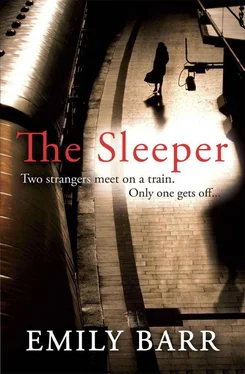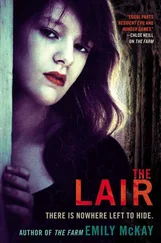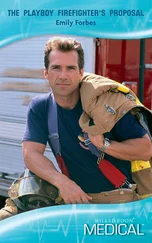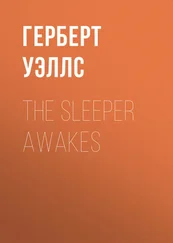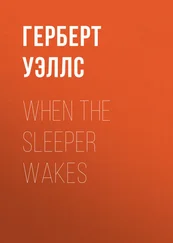It had been cold and crisp this morning, but now the sky was filling with fast-moving clouds. They massed above us, waiting for their moment; the light suddenly changed and, though it was still morning, it was instantly as dark as dusk.
We both waited, suspended, for the seconds it took the two-carriage train to reach the end of the branch line and disgorge its few passengers. Most people had got off the train at Falmouth Town, the stop before this one.
In spite of myself, my heart thumped as four passengers emerged around the end of the platform. A grey-haired couple, all walking clothes, backpacks and hearty sticks, set off determinedly across the car park. They were heading, I was sure, for the coastal path. A young man with a skateboard under his arm sauntered after them, wrapped in heavy jacket, scarf and woolly hat. Finally, there was a woman.
She was about the right age, but she was small and hesitant. As we watched, she looked around and stood at the edge of the car park, waiting for something. She had a bag on her back. We both stared until a car pulled up in front of her, and suddenly she smiled and relaxed and opened the back door to lob her bag inside before sitting in the front.
It was not her. Of course it wasn’t. I no longer expected it to be.
Rain started to splatter, half-sleety, against the window.
‘We need to call the police,’ I told him. He pretended not to have heard.
part one
Lara
chapter one
August
He stands next to me on the balcony and hands me the green mug his horrible mother gave me for Christmas. A train pulls into the station below us. It has two carriages, and thus is the biggest train that will fit alongside that platform.
‘One cup of tea,’ he says, with mock ceremony, and I try not to flinch. ‘I hope it meets with madam’s approval.’
It does not, but I cannot, of course, say so. I cradle it in both hands and try to arrange my features into the right expression. He knows which mugs I like, and he knows that this is emphatically not one of them. I cannot tell him that I care about such trivialities. He would pantomime wide-eyed, reasonable surprise.
‘Thanks,’ I say.
Our forearms touch as we lean on the rail, and we look out across the town. The sun is shining on the train in the station, the docks behind it, the town curved beyond them, hugging the harbour. Light glints off the water out there, and tiny dazzling spots of brightness come and go with the movement of the waves. On the other side of the estuary, the trees and fields and mansions of Flushing are glowing in the heat, unusual even for August. Seagulls stand in formation on the roof of one of the warehouses down at the docks. They are doing the bird equivalent of sunbathing. The almost uncomfortable heat on my skin, the salt in the air which I normally don’t notice, the glimmer of the sun on the water all make me think, suddenly, of long-forgotten childhood holidays.
‘It looks like a picture from a children’s book, doesn’t it?’ I say. ‘Station. Container ships. Warships. Sailing boats. Cars. Lorries. There should be words written underneath it.’ I place them with my hand, under the station car park. ‘“How many different forms of transport can you see …?”’
He is staring at me, not at the things I am pointing at, so I turn my head to look at him.
‘Yes,’ he says. ‘And those grabby things.’ He gestures to the equipment at the docks. ‘And the huge metal things that lift stuff. It’s picture-book heaven.’
I reach out and touch his arm. The hairs on it are springy and blond. Even this exchange has taken us too close to the topic that I am trying to avoid, just because there is nothing more to be said about it. I change the subject, sipping my tea (which, as it so often is, is about half the strength I would make it myself), and gesture at the houses over to our left.
‘And over there. How many different lives can we see? Thousands of homes. All those windows. All the things that go on behind them. I bet there’s weirder stuff happening out there than you could possibly imagine.’
He squints at the houses. ‘Than I could, or anyone?’
‘Anyone,’ I clarify, possibly too quickly.
Sam shifts his cup of tea into his other hand and puts an arm around my shoulders. I lean into him. He is big like a bear, broad but not fat. I have always liked that about him. While I recoil from the idea of being the sort of woman who wants a big strong man to look after her, I do, nonetheless, enjoy his solidity.
‘You remember that my friend’s coming over this afternoon?’ I say. ‘The one I met on the ferry.’
‘Oh yeah. You did say. What’s her name again?’
‘Iris.’
‘Yes. Iris.’
He disapproves. He doesn’t like anyone else being part of our life. We do not really have friends. I have invited Iris over precisely because I want to change that.
‘But this feels like the first time in ages we’ve just hung out,’ he says. He sounds nervous. ‘You know. It’s nice not to have the big conversations all the time. We made our plans and fate laughed in our face.’ I brace myself for the bit about everything happening for a reason. ‘Everything happens for a reason,’ he continues. ‘And I think all this has happened to bring us closer together, and because there’s a child out there somewhere, in China maybe. Or the Himalayas, like you always say. A child who needs us. That’s what’s meant to be, I’m sure of it.’
‘You just changed this into a big conversation.’
‘Oh. Sorry.’
I breathe deeply. ‘That’s OK,’ I say. He has made that little speech hundreds of times before, and maybe he is right. Perhaps infertility and everything else happened for some fuzzy, indefinable reason. Perhaps there is a child on a mountainside in Nepal who is destined to be ours. We don’t have the option of getting on a plane to go and find out. Even Visa, lenders of money to all and sundry, are declining to fund our further adventures.
Sam is right: I always talk about the Himalayas. I always longed to go there, to rent a house on a mountainside and live for months and months in the crisp fresh air, to walk and look and exist. I would do it tomorrow; but even when we had more money than we knew what to do with, I never went because my husband never fancied it. He always diverted me to what he called ‘a proper holiday’.
Perhaps my baby is, indeed, waiting for me out there, but I cannot get to her, or him. The thought is unsettling.
‘I love you,’ he says. ‘We may be all out of money, and all out of options with no child to show for it, but I love you.’
‘I love you too,’ I assure him hastily.
‘Lara.’
We lean into each other, feeling the sun on our bare arms and the tops of our heads, and stare out at the view and drink our tea. There is not much else to say.
I want to scream, and sometimes I do. On occasion, I scream as loudly as I can, but never when Sam is in the house. When he is anywhere nearby, I keep the angst repressed and internal. I cannot tell him anything close to the truth, and so, I suppose, our marriage is not what he thinks it is. He thinks we are solidly in love, battered but optimistic, ready to start on our new journey, one we did not foresee but whose destination is all the more wonderful for that. He thinks we will always be together, here in Cornwall, hundreds of miles from our two difficult families. He thinks we are a unit.
I would rather be single. I cannot possibly say that. I am secretly glad that we didn’t manage to have that baby. He would be heartbroken to hear it. Nothing in particular has happened: neither of us has been unfaithful, and he has never been anything worse to me than incredibly, cringingly annoying. I married the wrong man, with an inkling at the time that that was what I was doing, and so it is my fault and I am stuck.
Читать дальше
